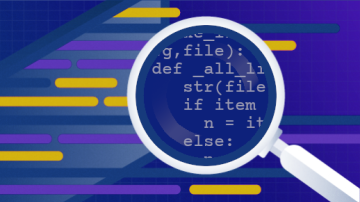Hanukkah famously has eight nights of celebration. The Hanukkah menorah, however, has nine candles: eight regular candles and a ninth that is always offset. It is called the shamash or shamos, which loosely translates to meaning "servant" or "janitor."
The shamos is the candle that lights all the others: it is the only candle whose fire can be used, not just watched. As we wrap up our series on the Zen of Python, I see how namespaces provide a similar service.
Namespaces in Python
Python uses namespaces for everything. Though simple, they are sparse data structures—which is often the best way to achieve a goal.
A namespace is a mapping from names to objects.
Modules are namespaces. This means that correctly predicting module semantics often just requires familiarity with how Python namespaces work. Classes are namespaces. Objects are namespaces. Functions have access to their local namespace, their parent namespace, and the global namespace.
The simple model, where the . operator accesses an object, which in turn will usually, but not always, do some sort of dictionary lookup, makes Python hard to optimize, but easy to explain.
Indeed, some third-party modules take this guideline and run with it. For example, the variants package turns functions into namespaces of "related functionality." It is a good example of how the Zen of Python can inspire new abstractions.
In conclusion
Thank you for joining me on this Hanukkah-inspired exploration of my favorite language. Go forth and meditate on the Zen until you reach enlightenment.










Comments are closed.